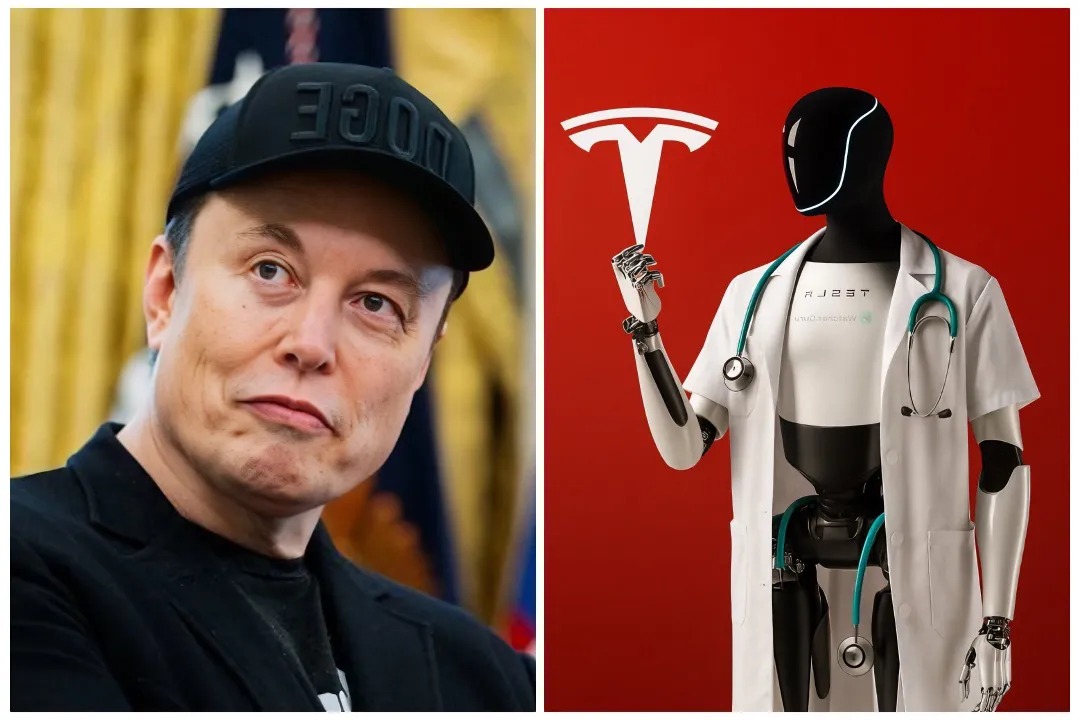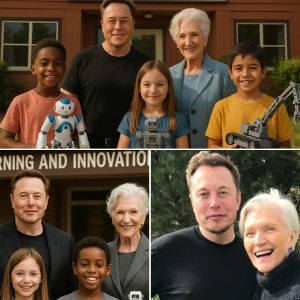Elon Musk’s Tesla Bot to Slice Humans Open: “Incredible Surgeon” Claim Ignites Medical Uproar
By CNN Tech & Health Desk – Published: October 23, 2025 – Updated 30 minutes ago
Elon Musk stunned the world this morning, declaring Tesla’s Optimus humanoid robot will “soon” perform complex surgeries with superhuman precision, outpacing even the most elite surgeons.

The bombshell dropped in a live X Spaces session, where Musk unveiled never-before-seen footage of Optimus wielding a scalpel on a cadaver, stitching arteries in under 90 seconds—faster than any human record. “We’re not replacing doctors,” Musk insisted. “We’re upgrading them.” Yet medical boards are already drafting emergency bans, branding the move “genius-level innovation or catastrophic hubris.”
Insiders at Tesla’s Fremont lab confirm the robot has quietly logged 200+ simulated procedures, guided by AI trained on millions of anonymized surgical videos from Johns Hopkins and Mayo Clinic. Real-time haptics let Optimus “feel” tissue density, while neural networks predict complications 30 seconds before they occur. Musk claims the first human trial—voluntary, of course—could happen within 18 months, starting with appendectomies in low-resource regions. “Imagine a village in Kenya getting Stanford-level care from a $20,000 bot,” he said, eyes gleaming.
But surgeons are livid. Dr. Elena Ramirez, president of the American College of Surgeons, called the plan “reckless theater.” In a blistering statement, she revealed leaked Tesla emails showing Optimus failed 12% of high-pressure simulations—catastrophic in an OR. “A tremor, a power flicker, a Wi-Fi lag—patients bleed out,” she warned. Sources inside the FDA whisper Musk’s team is lobbying for “emergency compassionate use” loopholes, bypassing years of trials. One whistleblower, a former Neuralink surgeon, alleges Musk personally overrode safety protocols, muttering, “We move fast or medicine stays medieval.”
The controversy explodes further: Tesla’s board quietly filed patents for “Optimus OR Pods”—pop-up surgical suites deployable via Starship. Critics scream monopoly; supporters hail salvation. A viral clip shows Optimus removing a mock tumor with zero blood loss, captioned “Your appendix doesn’t stand a chance.” Yet horror stories circulate—beta tests allegedly left silicone “patients” in shreds.
Musk doubled down: “Surgeons fear obsolescence like Blockbuster feared Netflix.” As #RobotSurgeon trends, hospitals stockpile anti-hacking firewalls, terrified of remote sabotage. Will Optimus save millions—or spark the first AI malpractice apocalypse? The scalpel is poised; the world holds its breath.


